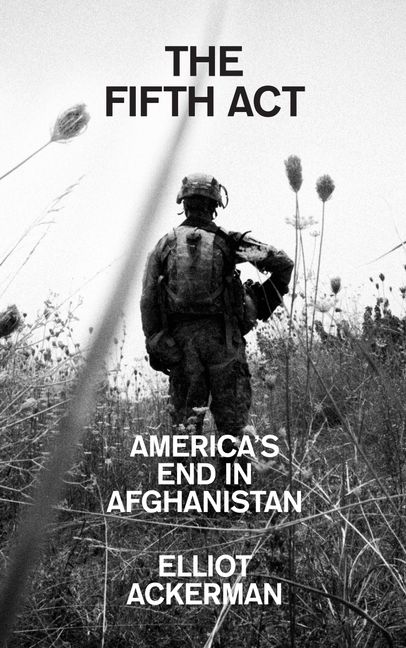How and why did American involvement in Afghanistan end in tragedy?
Elliot Ackerman left the American military ten years ago, but his time in Afghanistan and Iraq with the Marines and, later, as a CIA paramilitary officer marked him indelibly. When the Taliban began to close in on Kabul in August of 2021 and the Afghan regime began its death spiral, he found himself pulled back into the conflict. Afghan nationals who had, for years, worked closely with the American military and intelligence communities now faced brutal reprisal and sought frantically to flee the country with their families. The official US government evacuation process was a bureaucratic failure that led to a humanitarian catastrophe.
The Fifth Act is an astonishing human document that brings the weight of twenty years of war to bear on a single week at its bitter end. Using the dramatic rescue efforts in Kabul as his lattice, Ackerman weaves in a personal history of the war’s long progress, beginning with the initial invasion in the months after 9/11. It is a play in five acts, the fifth act being the story’s tragic denouement, a prelude to Afghanistan’s dark future. Any reader who wants to understand what went wrong with the war’s trajectory will find a trenchant accounting here.
And yet The Fifth Act is not an exercise in finger-pointing: it brings readers into close contact with a remarkable group of characters, American and Afghan, who fought the war with courage and dedication, in good faith and at great personal cost.
Understanding combatants’ experiences and sacrifices while reckoning with the complex bottom line of the post-9/11 wars is not an easy balance; it demands reservoirs of wisdom and the gifts of an extraordinary storyteller. It asks for an author willing to grapple with certain hard-earned truths. In Elliot Ackerman, this story has found that author. The Fifth Act is a first draft of history that feels like a timeless classic.




